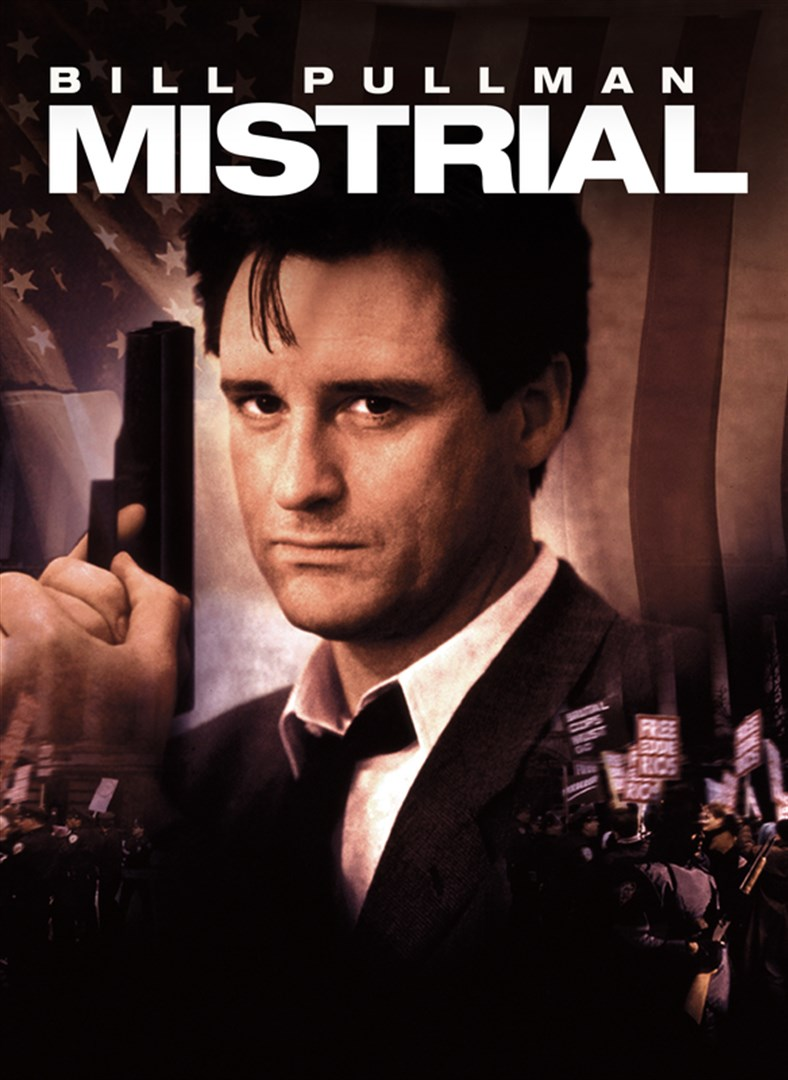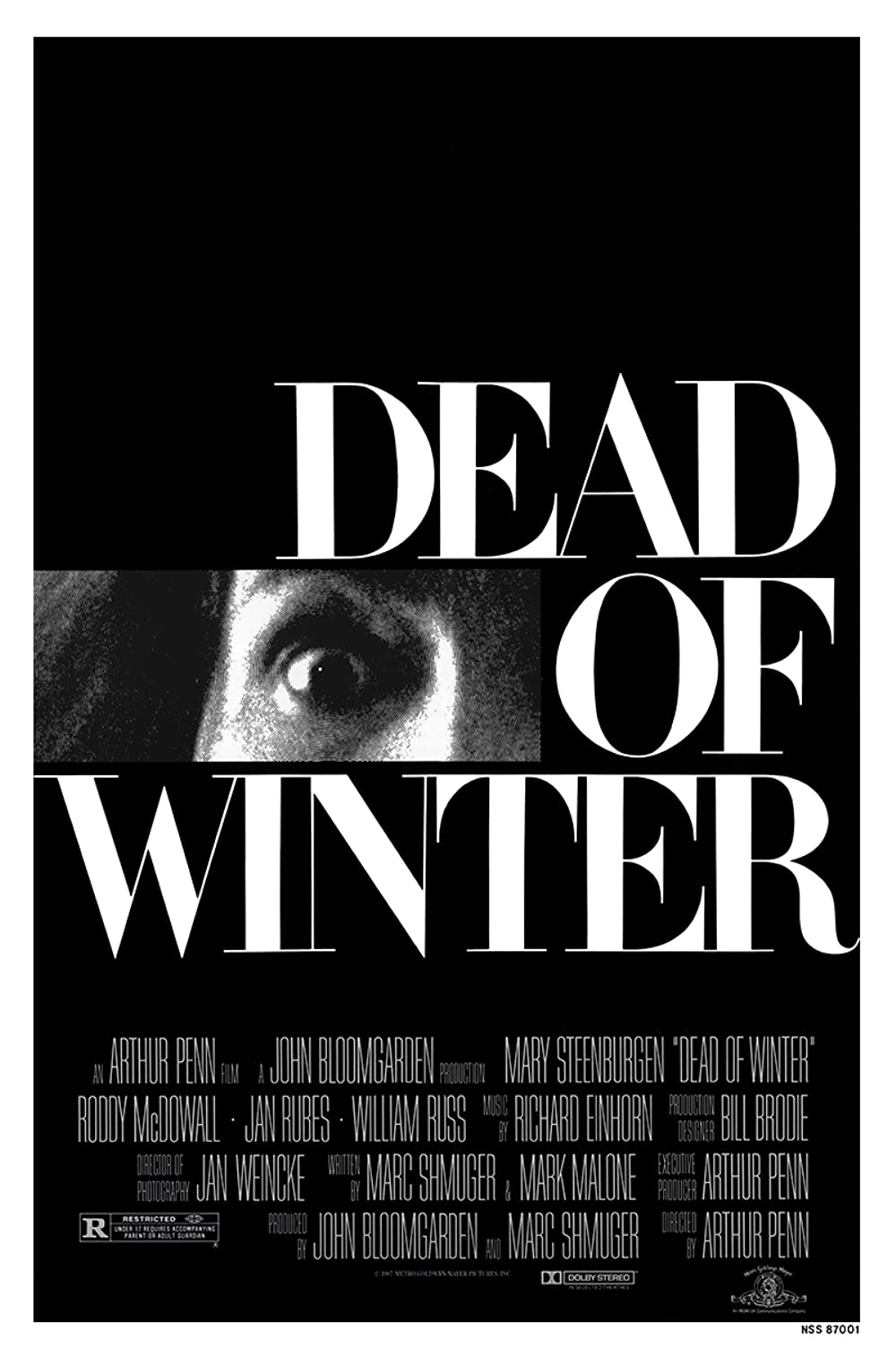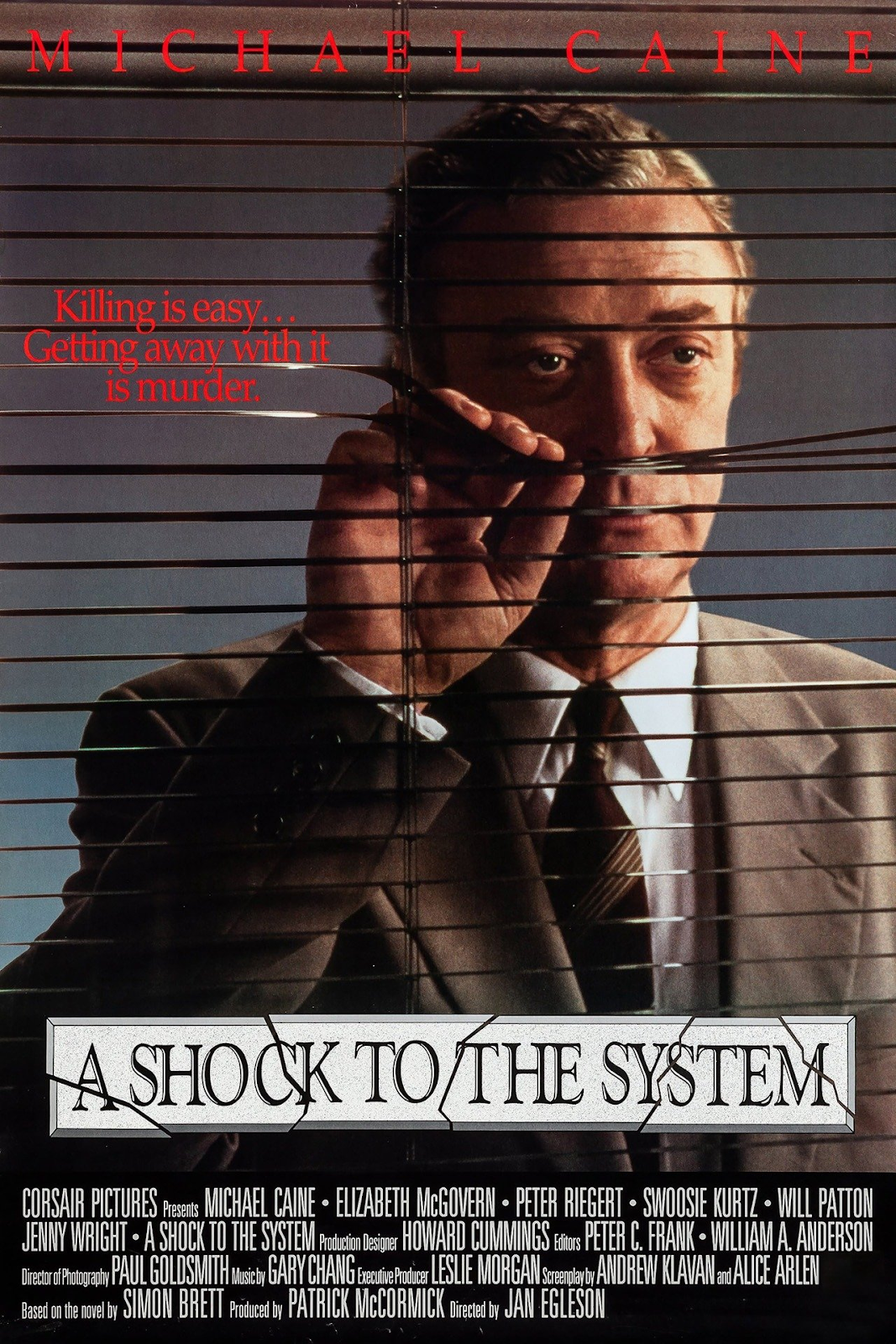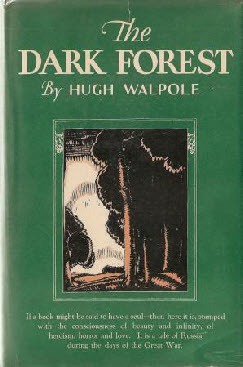Friday, December 16, 2022
Film Review: Into The West (1992) *** out of *****
Sunday, December 4, 2022
New Episode of THE DARK FANTASTIC PODCAST now available
In this special episode, Ahmed Khalifa pays tribute to Peter Straub, the acclaimed dark fantasy author of such novels as Ghost Story and Floating Dragon.
Khalifa also discusses the work and legacy of Stuart Woods, most famous for his Stone Barrington thrillers, who also passed away this year.
Saturday, November 26, 2022
Discovering The Thing From Another World. The True Sequel To John Carpenter's Classic.
With its foreboding tone, startling and stylish visuals, deliberate pacing, and terrifying special effects, The Thing, is now considered John Carpenter’s greatest film.
With its belated success on cable and home video, there has been talk of producing a sequel to The Thing, since the 1990s, including Return of the Thing, a four-hour miniseries, and a direct sequel to the Carpenter movie, for the Sci Fi network. It was to be produced by Frank Darabont, the acclaimed director of The Shawshank Redemption, and The Mist, and written by David Leslie Johnson McGoldrick, of The Conjuring franchise.
But the project was shelved, partly due to budget concerns, and Universal Pictures decided to go for a big screen feature, unimaginatively called The Thing, a 2011 prequel set at the Norwegian camp featured in John Carpenter’s original.
But before that, a sequel was made, taking place mere hours after the events of Carpenter’s film.
The Thing From Another World, written by Chuck Pfarrer, was released by Dark Horse Comics, and is, arguably, the only true sequel to John Carpenter’s The Thing.
The graphic novel begins after the destruction of the U.S. Outpost 31, where the events of the film took place, by the shape-shifting extraterrestrial creature.
The only survivors are MacReady and Childs. MacReady is found and picked up by the crew of a Japanese whaling ship, and is held captive after a hysterical outburst. But soon after, he escapes, and tries to find out whether he is human, or just another version of the thing.
Pfarrer, a self-avowed student of Carpenter’s original film, writes a tense story in a hard-boiled, straightforward style, that propels the reader headlong into a series of set-pieces that never let up. He also ingeniously gets around the problem of dealing with the ending of Carpenter’s original, which basically painted the story into a corner.
In the novel, Pfarrer slowly reveals what happened to MacReady and Childs, and introduces a new complication that could have apocalyptic consequences.
The Thing From Another World is a dream come true for fans of Carpenter’s original. It picks up right after the events of the film, the characters remain true to their portrayals in the original, and Pfarrer's tone and style capture, to a large extent, the mood of the original.
The only caveat is that the headlong pace and grim tone, leave little room for character development, as this is pure story, with no real revelations about the main players. But this too, it could be argued, follows Carpenter’s original approach, which stuck to basic survival psychology, rather than delve deep into the minds of its characters.
With great artwork by John B. Higgins, The Thing From Another World is a treat for fans of the original, and it serves as a worthy sequel to Carpenter’s film.
Carpenter himself has endorsed the graphic novel on many occasions, to the extent that, according to him, if he ever got a chance to make a sequel to The Thing, he would closely follow Pfarrer's story.
Text © Ahmed Khalifa. 2022.
Ahmed Khalifa is a filmmaker and novelist. He is the writer/director of several short films and a feature, which was released on Netflix, and the author of a number of novels and short stories, including the YA horror novel, Beware The Stranger, available on Amazon. He is also the host of The Dark Fantastic Podcast. Find him on Twitter @AFKhalifa and on Facebook @DFantasticPodcast
Listen to/Watch the video version of this article here:
Sunday, November 20, 2022
Book Review: BATMAN: MADE OF WOOD (2003) By Ed Brubaker and Patrick Zircher *** and a 1\2 out of *****
 |
| (c) DC. |
Thursday, November 17, 2022
Film Review: LOOKING FOR MR. GOODBAR (1977) ** and a 1\2 out of *****
 |
| (C) Paramount. |
Richard Brooks, who adapted the novel for the screen, directs with a grimy, uncontrolled style, delivering a film that is morally and psychologically shallow, shrill, and borderline repugnant. Exploitive to the core, every minority under the sun is portrayed as either a victim or unstable, and Brooks' attempt at being "hip", by drowning the film in disco tunes and jump cuts, made the film look dated as soon as it was released.
Much has been said about Diane Keaton's performance as Theresa, the sexually adventurous/aggressive protagonist, and it is true that Keaton delivers a mesmerizing performance, but it is also a smug one, and a portrayal that doesn't wholly gel with the writing, producing a character that is equal parts unlikable and tragic. A young Richard Gere as a hyperactive gigolo, and Tom Berenger as a troubled and sexually confused ex-con, are the true scene-stealers in the film.
The epitome of 1970's "socially-conscious" dramas, this is a dated and unredeeming descent into nihilism and ugliness that is not deserving of its praise. Maybe that's the reason why the film has been so hard to find for many decades.
Text © Ahmed Khalifa. 2022.
Ahmed Khalifa is a filmmaker and novelist. He is the writer/director of several short films and a feature, which was released on Netflix, and the author of a number of novels and short stories, including the YA horror novel, Beware The Stranger, available on Amazon. He is also the host of The Dark Fantastic Podcast. Find him on Twitter @AFKhalifa and on Facebook @DFantasticPodcast
Watch/Listen to Review here:
Sunday, November 13, 2022
Book Review: THE POE SHADOW by Matthew Pearl **** OUT OF *****
 |
| (c) Random House. |
Friday, November 11, 2022
Film Review: ROB ZOMBIE'S HALLOWEEN II (2009) *** and a 1\2 out of *****
 |
| (c) Dimension |
Film review: ROB ZOMBIE'S HALLOWEEN (2007) *** out of *****
 |
| (c) Dimension |
Wednesday, October 19, 2022
Halloweens, Abominations, and Fan Expectations
Tuesday, October 11, 2022
Quick Review: DEAD OF WINTER (1987) *** and a 1\2 out of *****
Text © Ahmed Khalifa. 2022.
Watch/Listen to review here:
Ahmed Khalifa is a filmmaker and novelist. He is the writer/director of several short films and a feature, which was released on Netflix, and the author of a number of novels and short stories, including the YA horror novel, Beware The Stranger, available on Amazon. He is also the host of The Dark Fantastic Podcast. Find him on Twitter @AFKhalifa and on Facebook @DFantasticPodcast
Saturday, August 27, 2022
Book Review: THE BIG DARK SKY By Dean Koontz. *** and a 1\2 out of *****
Ahmed Khalifa is a filmmaker and novelist. He is the writer/director of several short films and a feature, which was released on Netflix, and the author of a number of novels and short stories, including the YA horror novel, Beware The Stranger, available on Amazon. He is also the host of The Dark Fantastic Podcast. Find him on Twitter @AFKhalifa and on Facebook @DFantasticPodcast
Sunday, July 24, 2022
Movie Review: A SHOCK TO THE SYSTEM (1990) **** out of *****


Thursday, July 21, 2022
Movie Review: THE BLACK PHONE (2022) *** and a 1\2 out of *****
 |
| (c) Universal/Blumhouse. |
Loosely based on a short story by Joe Hill, the movie revolves around Finney Shaw, a shy 13-year-old boy living with an abusive, alcoholic father. When he's abducted by a sadistic killer and trapped in a soundproof basement, he feels helpless and close to death. Then, suddenly, a disconnected phone on the wall rings, and Finney discovers that he can hear the voices of the killer’s previous victims. It's a helluva hook, and Derrickson milks it for all its worth, delivering a number of tense and disturbing sequences, as Finney tries to find a way out before his abductor strikes.
But a strong hook aside, The Black Phone has its share of problems. With the exception of Finney, wonderfully played by Mason Thames, and Robin, memorably portrayed by Miguel Cazarez Mora, the rest of the characters are little more than the sum of their parts, with each character seeming to be there to catalyze a plot point or fulfill an emotional beat, while the villain, The Grabber, played by a game Ethan Hawke, comes off as two-dimensional and unoriginal. The plotting is also creaky, with storylines coming and going, as if there are three different movies taking place at the same time, resulting in a story that never really gels. And for a film about survival and overcoming, the tone is relentlessly dour. And even when a light finally shines at the end of the tunnel, it isn't as uplifting or moving as it should be, with the ending leaving somewhat of a sour aftertaste.
But, for the most part, The Black Phone hits more than it misses, and is an affecting and heartfelt movie in many ways. And its depiction of the role of faith at times of crisis is a breath of fresh air, especially coming from an industry that seems to export misery and nihilism by the truckload. One just wishes the movie was twenty minutes shorter and packed more of a punch.
Text © Ahmed Khalifa. 2022.
Ahmed Khalifa is a filmmaker and novelist. He is the writer/director of several short films and a feature, which was released on Netflix, and the author of a number of novels and short stories, including the YA horror novel, Beware The Stranger, available on Amazon. He is also the host of The Dark Fantastic Podcast. Find him on Twitter @AFKhalifa and on Facebook @DFantasticPodcast
Tuesday, July 19, 2022
Book Review: DRACULA UNBOUND By Brian Aldiss *** out of *****
Alas, the second time is not the charm. Where Frankenstein Unbound was fast-paced, coherent, and thought-provoking, Dracula Unbound is slow, meandering, and intellectually lukewarm.
The plot (from the publisher's blurb): In the barren dust of the far future, the sun leaks energy in a darkening sky and the only remaining humans are imprisoned by spectral, bloodthirsty beings. Back in the brilliant Utah sunlight of 1999, two ancient graves yield evidence that a species of human coexisted with the dinosaurs . . . Linking these scenarios is impetuous inventor Joe Bodenland (the protagonist of Frankenstein Unbound), who has just created a machine that manipulates time to dispose of hazardous waste . . .
Where's Dracula, you ask? Well, without revealing too much, let's just say that Bodenland manages to go back in time, meet Bram Stoker, and together they hunt down the vampiric creature that will later inspire Stoker to revise his masterpiece.
As is obvious from the synopsis, the plot is confusing and confused, and Aldiss, never a writer to dwell on characters' motivations and psychology, is at his worst here, with characters that are mere sketches, and dialogue that is woefully artificial.
And unlike in Frankenstein Unbound, where he treated the source material and its author with reverence, here, Aldiss foregoes the tone and mood of the original novel, and seems intent on ridiculing Stoker, portraying him as a staunchly conservative, syphilitic hypocrite, who is always eager to do battle for "God and Country" at the drop of a pin. Aldiss, who has a penchant for psycho-sexualizing his stories at the expense of quality, misses the mark here, and his portrayal of Stoker is nothing less than offensive, especially since in his afterword he mentions relying for his research on two highly-contested biographies: A Biography of Dracula: The Life Story of Bram Stoker by Harry Ludlum, and The Man Who Wrote Dracula: A Biography of Bram Stoker by Daniel Farson *.
But all could have been forgiven if the story had been compelling. But it isn't, and fans of Stoker and his novel will be disappointed by what Aldiss does with and to them.
Still, the novel is high on imagination, even if it is low on craft, and it is an interesting misfire by a singular author.
* For a more balanced analysis of the novel Dracula, and the life of Bram Stoker, check out Elizabeth Miller's brilliant essay, Coitus Interruptus: Sex, Bram Stoker, and Dracula, available here.
Text © Ahmed Khalifa. 2022.
Ahmed Khalifa is a filmmaker and novelist. He is the writer/director of several short films and a feature, which was released on Netflix, and the author of a number of novels and short stories, including the YA horror novel, Beware The Stranger, available on Amazon. He is also the host of The Dark Fantastic Podcast. Find him on Twitter @AFKhalifa and on Facebook @DFantasticPodcast
Sunday, July 17, 2022
Movie Review: HALLOWEEN KILLS (2022): THE EXTENDED CUT ** and a 1\2 out of *****
 |
| (c) Universal/Blumhouse. |
And now we come to Green's sequel, Halloween Kills (2022). There isn't much to add, really. It's a tad less crass, but it's even more meat-headed than Halloween (2018), and Green amps up the violence to sickening levels, throwing everything but the kitchen sink in a cynical attempt to appeal to the lowest common denominator. While Green's Halloween script's left something to be desired, the writing in Halloween Kills is, for the most part, abysmal, with characters speaking stiff dialogue and acting in ways that defy all logic. Add to that Green and company's including a "message" about the madness of crowds in a film that is already politically-corrected to within an inch of its life, and you get something that is simultaneously bland, offensive, and forgettable.
Although Halloween Kills has its moments, they are few and far between, and one can only guess why Carpenter would add his name and blessing to such a mess of a sequel to his beloved classic.
Text © Ahmed Khalifa. 2022.
Ahmed Khalifa is a filmmaker and novelist. He is the writer/director of several short films and a feature, which was released on Netflix, and the author of a number of novels and short stories, including the YA horror novel, Beware The Stranger, available on Amazon. He is also the host of The Dark Fantastic Podcast. Find him on Twitter @AFKhalifa and on Facebook @DFantasticPodcast
Tuesday, July 12, 2022
Film Review: MISTRIAL (1996) *** and a 1\2 out of *****
 |
| (C) HBO/WB. |
Wednesday, June 29, 2022
Book Review. From A Buick 8 by Stephen King. *** out of *****
Friday, June 10, 2022
New Podcast Episode Now Live
© The Dark Fantastic Network. 2022.
Book Review: THE DARK FOREST by Hugh Walpole. *** and a 1\2 out of *****
Monday, June 6, 2022
Review: THE SHADOW: THE SILVER SCOURGE by Walter B. Gibson *** out of *****
Text © Ahmed Khalifa. 2022.
Ahmed Khalifa is a filmmaker and novelist. He is the writer/director of several short films and a feature, which was released on Netflix, and the author of a number of novels and short stories, including the YA horror novel, Beware The Stranger, available on Amazon. He is also the host of The Dark Fantastic Podcast. Find him on Twitter @AFKhalifa and on Facebook @Dark.Fantastic.AK·Writer
Wednesday, June 1, 2022
Film Review: THE BATMAN (2022) *** out of *****
 |
| (C) WB. |
Monday, May 30, 2022
Friday, May 20, 2022
Book Review: Crime School by Carol O’Connell. **** out of *****
The plot: Police Detective Kathleen "Kathy" Mallory, a cold, hyper-intelligent young woman, recognizes a recent victim of a brutal attack as Sparrow, a prostitute she knew from her past who protected her on the streets of New York when Kathleen was a homeless child on the run. Slowly, clues reveal that this attack might be the work of a copy-cat killer who is repeating crimes from more than twenty years ago. But Kathy is worried, and so is her older partner Riker, as it seems that Mallory's past has finally caught up with her.
The above synopsis does the book a disservice, as O’Connell’s books are never about plots, which are usually serpentine and overly-complex. Instead, her books are about the journey, the characters, the unique voice that is both modernist and classical; accessible yet strange. O’Connell has a tendency towards self-indulgence, often losing herself in bizarre asides and overly quirky situations, elements which are more pronounced in her less effective novels, like Stone Angel, and Shell Game, also featuring Mallory. But here, although these distractions are present, O’Connell’s writing, for the most part, is at its finest, weaving myriad strands and fascinating psychological details into a compelling, haunting story about memory, trust, the magic of storytelling, and the beauty of an unsolvable mystery. The novel also pulls off the neat trick of working both as a stand-alone story, and as an introduction to the adventures of Mallory, of which this is the sixth volume, while ending on a pitch perfect note that could have served just as well as the series’ finale.
Crime School is crime fiction at its best, entertaining, moody, original, and with a touch of the surreal. If you’re new to the Mallory novels, you’re in for a pleasant surprise. If you’re already a fan, you’re in for a treat.
Watch/Listen to review here:
Text © Ahmed Khalifa. 2022.
Ahmed Khalifa is a filmmaker and novelist. He is the writer/director of several short films and a feature, which was released on Netflix, and the author of a number of novels and short stories, including the YA horror novel, Beware The Stranger, available on Amazon. He is also the host of The Dark Fantastic Podcast. Find him on Twitter @AFKhalifa and on Facebook @Dark.Fantastic.AK·Writer
Friday, April 22, 2022
Book Review: QUICKSILVER By Dean Koontz ** and a 1\2 out of *****
 |
| (c) Amazon. |
Friday, April 15, 2022
Book Review: HELLTOWN by Dennis O'Neil: *** and a 1\2 out of *****
Thursday, April 14, 2022
New Episode of THE DARK FANTASTIC PODCAST!
- Your host, A. K., talks about rediscovering the black and white Hitchcock films of the 1920s and 30s, like Number 17 (1932) and Blackmail (1930).
- A tribute to the late, great David Williams, rhythm guitarist extraordinaire, who collaborated with every one from Michael Jackson, to Madonna, to Bryan Ferry.
© The Dark Fantastic Network. 2022.
Subscribe to the podcast at Spotify, Google Podcasts, Deezer, Podchaser, Audible, Amazon Music, or wherever you get your podcasts.
Listen to "Episode 13: Hitchcock in Black and White, and The Great David Williams (Pocket Edition)" on Spreaker.














